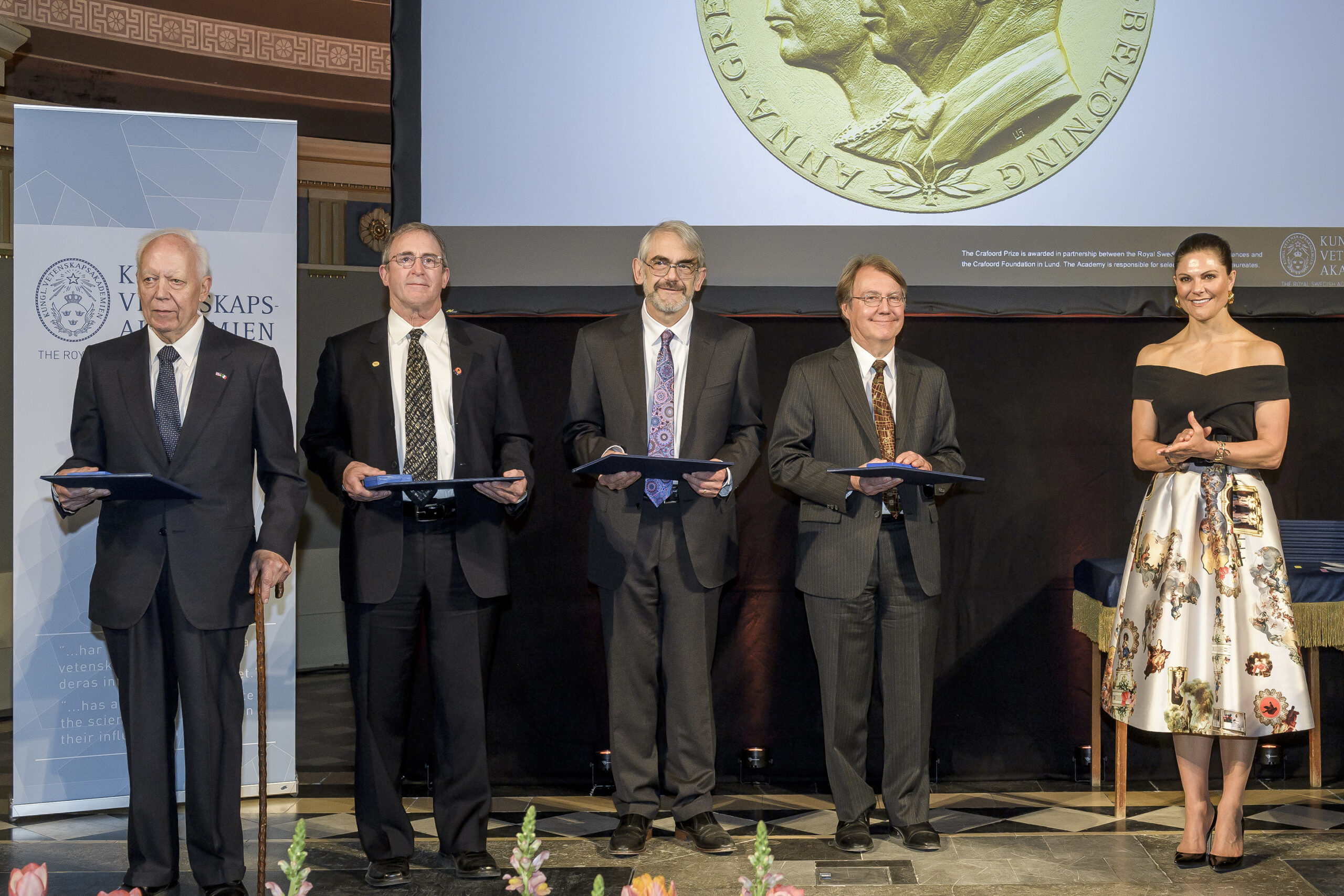Dan Kastner, USA, has described an entirely new group of rare autoinflammatory diseases. His discoveries have brought new knowledge and led to the development of effective treatments. The Royal Swedish Academy of Sciences is awarding him this year’s Crafoord Prize in Polyarthritis, worth six million Swedish kronor (approx. USD 700,000).
The Crafoord Prize is one of the major international science prizes, with subject areas that complement the Nobel Prizes and rotate from year to year. The Prize in Polyarthritis was instituted because the donor, Holger Crafoord, suffered from severe rheumatoid arthritis towards the end of his life.
Daniel (Dan) L. Kastner, receives this year’s Prize in Polyarthritis “for establishing the concept of autoinflammatory diseases”. He has identified the mechanisms responsible for familial Mediterranean fever, TRAPS and other diagnoses within this group. They are genetic diseases that are unusual in most of the world, but may have a higher incidence in some areas. One or two of every thousand people in the eastern Mediterranean have familial Mediterranean fever, while TRAPS was initially discovered among families in Ireland and Scotland.
Even just 20 years ago, researchers could not explain why those afflicted had recurring fevers, abdominal pain, joint inflammation, troublesome rashes and muscle aches. Dan Kastner started by studying patients with familial Mediterranean fever, and discovered that it was caused by a mutation in a single gene. He then identified the cause of TRAPS and established the concept of autoinflammatory diseases.
In autoimmune diseases and autoinflammatory diseases, the body’s tissues are attacked by the immune system. However, in autoinflammatory disease the problem is within the immune system itself. Recently, research has broadened the understanding of rare (monogenic) and more common (polygenic) autoinflammatory diseases such as Crohn’s disease and gout.
“Dan Kastner is often called the father of autoinflammatory diseases, a title that he thoroughly deserves. His discoveries have taught us a great deal about the immune system and its functions, contributing to effective treatments that reduce the symptoms of diseases from which patients previously suffered enormously, sometimes leading to premature death,” says Olle Kämpe, chair of the Prize Committee.
Dan Kastner is currently working on Behçet’s disease, which is often found along the old Silk Road and is caused by inflammation in the blood vessels. He is delighted to receive this award.
“The phone call from the Academy took me totally by surprise, and I must confess to having been almost speechless when I was told the wonderful news. I can’t begin to express how much of an honour it is to be the recipient of this year’s Crafoord Prize. I owe so much to my patients, to my colleagues in the clinic and in the laboratory, and of course to my family, all of whom did so much to make this possible,” says Dan Kastner.
About the Prize
The Crafoord Prize is awarded by the Royal Swedish Academy of Sciences and the Crafoord Foundation in Lund, with the Academy being responsible for selecting the Laureates. Its subject areas rotate every year, between mathematics and astronomy, the geosciences, biosciences and polyarthritis (such as rheumatoid arthritis). The Prize in Polyarthritis is only awarded when there has been scientific progress that motivates a prize. This year’s Laureate in Polyarthritis will receive six million Swedish kronor.
About the Laureate
Daniel L. Kastner is scientific director at the Division of Intramural Research, National Human Genome Research Institute, National Institutes of Health, Bethesda, Maryland, USA. He was born in 1951 in Lockport, New York, USA, and received his MD and PhD from the Baylor College of Medicine, USA, 1982.

